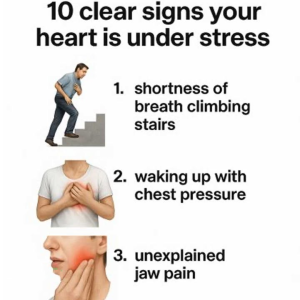
Your morning routine has more impact on your health than you might think—especially if you’re living with high blood pressure.
Dr. João Sorio, an endocrinologist, highlights nine common morning mistakes people make and what you can do differently to protect your health.
Nine common morning mistakes
1. Don’t Skip Medication Because Your Readings Look Good
Seeing a normal blood pressure reading might tempt you to skip your meds—but don’t. That number is likely stable because you’re taking your medication consistently. High blood pressure is a long-term condition, not something to treat based on how you feel one day. Only change your medication under your doctor’s guidance.

2. Some Teas Can Be Risky
While tea seems harmless, some types—like green, black, ginger, and mate tea—can actually raise blood pressure. Others, like hibiscus and lemon balm tea, may lower it. But if you’re already on medication, combining it with pressure-lowering teas could make you dizzy or lightheaded. Always check with your doctor before adding herbal teas to your routine.
3. Feeling Fine Doesn’t Mean You’re in the Clear
High blood pressure is often symptomless, which is why it’s called the “silent killer.” Even if you feel okay, high numbers like 150/90 can still damage organs. Don’t wait for symptoms—stay on top of your readings and treatment.
Blood Pressure Categories:
- Normal: under 120/80
- Elevated: 120–129 / under 80
- Stage 1 Hypertension: 130–139 / 80–89
- Stage 2: 140+ / 90+
- Crisis: over 180 / 120+
4. Over-the-Counter Painkillers Can Raise Blood Pressure
Anti-inflammatory drugs like ibuprofen, naproxen, and diclofenac are commonly used—but they can interfere with your blood pressure medication and raise your numbers. Use them sparingly and consult your doctor if you need them regularly.

5. Breakfast Choices Matter
Morning meals often contain hidden sodium—bacon, sausage, deli meats, cheese, even sauces and olives. Too much salt can spike your blood pressure. The daily sodium limit is 2 grams (5 grams of salt), but many people easily double that. Choose fresh, unprocessed foods when possible.
6. Don’t Neglect Your Sleep
Sleep plays a vital role in blood pressure regulation. Aim for 6 to 8 hours of good-quality sleep. Poor sleep can raise stress hormones and increase your blood pressure. Conditions like sleep apnea also contribute—if you snore or wake up gasping, talk to your doctor.
7. Know What’s Causing Your High Blood Pressure
Understanding the root cause is crucial. Thyroid disorders (both overactive and underactive) and high cortisol levels can impact blood pressure. Identifying and treating these conditions is essential for effective long-term control.

8. Track Your Blood Pressure Properly
Don’t obsessively check your blood pressure, but don’t ignore it either. Record your readings—date, time, both numbers, and heart rate—so your doctor can understand patterns and adjust your treatment accurately.
9. Be Smart About Coffee
Coffee isn’t the enemy—in fact, in moderation it can be heart-friendly. But too much caffeine (over 8 servings a day) may increase the risk of arrhythmia. The sweet spot is 3 to 4 cups a day. Pay attention to how your body reacts and adjust accordingly.
Final Thought: Small Habits, Big Impact
Managing high blood pressure isn’t about dramatic changes—it’s about smart, consistent daily choices. Talk to your doctor, stay informed, and avoid these common pitfalls to protect your heart and health in the long run.




